Anglican: Huh? No Way? What Took You So Long?
Some have asked why I walked away from my Evangelical roots. Let me clarify. I did not run away from my Evangelical roots. It was not some strong push factors that tipped me over the other side. Rather, I was being drawn to something else.
Over the last 10 years or so, there has been a greater desire drawing me towards the ancient practices and teachings rooted in the rich history and tradition of the church. As I began to explore the various strands of Christian spirituality, formation, and worship, I was drawn to Anglicanism with its immense value and richness in its history, theology, and practice.
Here are some reasons why I am an Anglican.
1. Liturgical Worship
The liturgical calendar also reminds me of the various seasons of the year, moving from Advent to Christmas, Lent, Easter, Pentecost and Christ the King. In between, we commemorate other important Holy Days. As a community, we move through the seasons of the liturgical year together. We fast and feast together. There is a deep sense of celebrating and commemorating the different seasons of the liturgical calendar.
2. The Book of Common Prayer & The Daily Office
| The Book of Common Prayer helps me pray when I lack original words or even the desire to pray. The prayers are beautifully and biblically crafted. The Daily Office provides me a guide for reading the Bible systematically, confess my sins daily, and offer prayers and intercessions to God on behalf of the world. Each day, the readings cover the Old Testament, Psalm, and the New Testament. By observing the Daily Office, I develop the habit of starting and ending each day with prayer and contemplation as the perfect bookends for my days. These orders for daily worship not only form the backbone of Anglican spirituality but provide a proven rhythm of devotion to God that is deeply rooted in the Scripture. It is a healthy spiritual discipline for me. |
3. Theological Breadth
All these works never replace the Bible. At the heart of Anglican theology is the Bible. There is a well-known collect used by Anglicans for many centuries, reminding us that the Bible is the revelation of God through the words of human beings:
Blessed Lord, you have caused all holy Scriptures to be written for our learning: grant that we may so hear them, read, mark, learn and inwardly digest them, that, by patience and comfort of your holy word we may embrace and ever hold fast the blessed hope of everlasting life, which you have given us in our Saviour Jesus Christ, who lives and reigns with you and the Holy Spirit, one God, for ever and ever. Amen.
4. The Anglican Communion
Whenever we gather to worship - whether we belong to a cathedral, a parish in a large metropolis or a small church in a tiny rural village that is cut off from the rest of the world - we are still engaging with a common faith, reading the same Scripture passages, praying the same prayers, confessing alongside one another, and participating in the Eucharist, despite our differences in ethnicity, culture, and language.
Yet at the same time, we also recognise that all of us are shaped and formed by the culture of the communities we belong to. With this regards, there is respect for different areas of involvement in the church based on our unique local expressions, actions, issues.
What’s Next?
As a minister of the gospel since 2009 with the Evangelical Free Church of Malaysia, it is only natural that I seek for ordination in the Diocese of West Malaysia. With the encouragement of the Bishop and fellow colleagues, I have decided to offer myself as a candidate for the Holy Office. Having gone through the process of interview and fulfilling the requirements stipulated by the Diocese, the first reading of Si Quis was done on September 16, 2018 at my home church, St Paul’s Church, paving the way for my ordination as a Deacon, God willing, on Reformation Day, October 31, 2018.
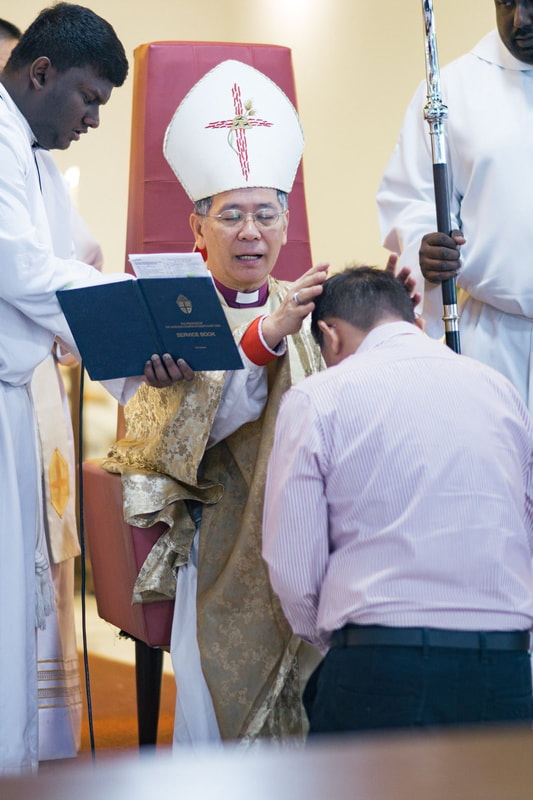
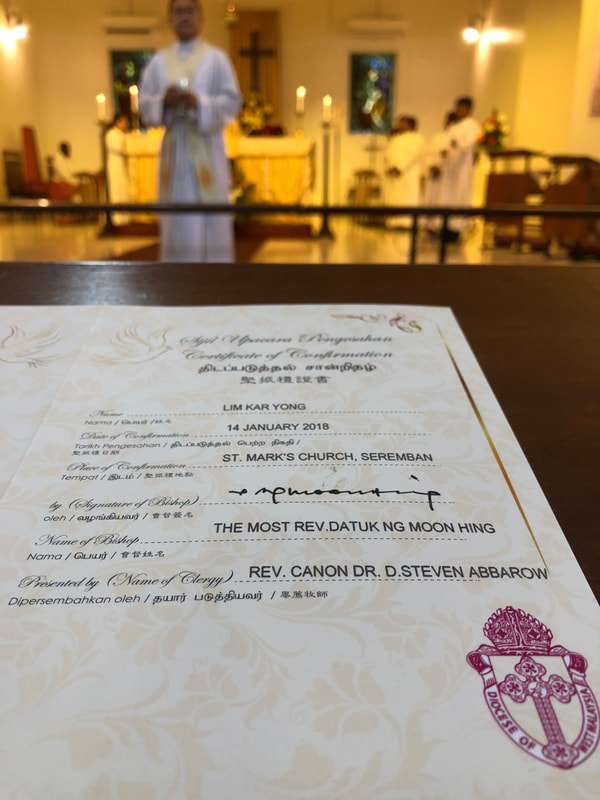
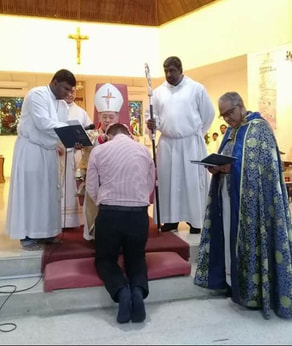
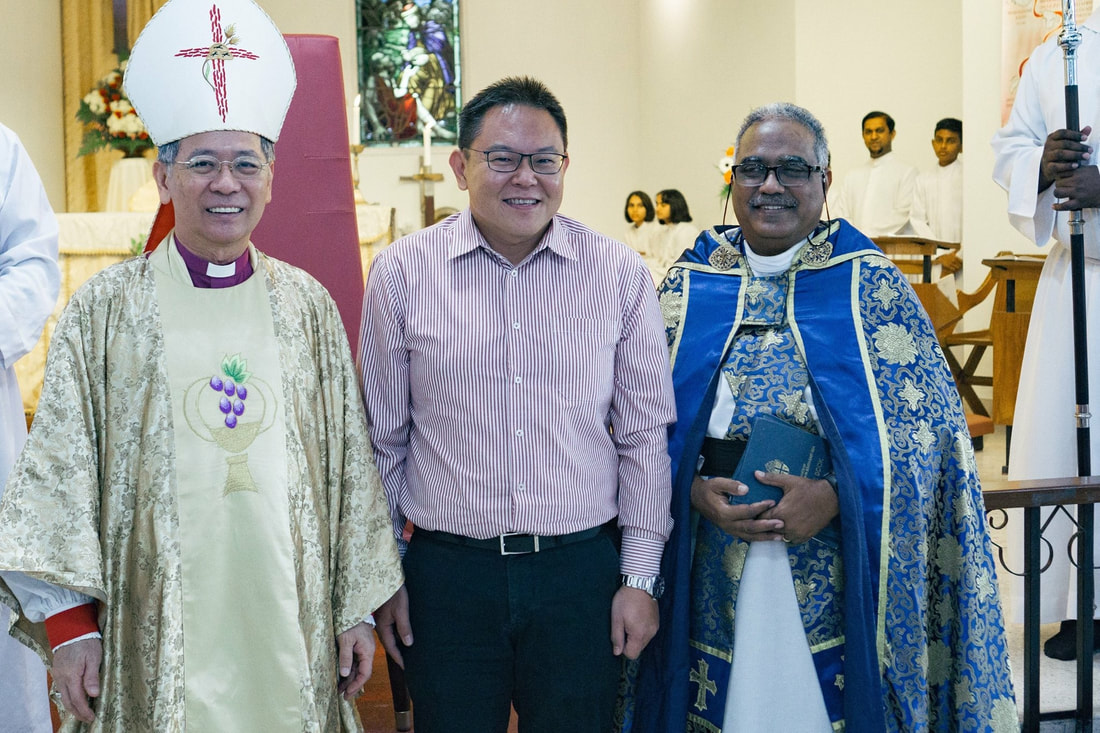
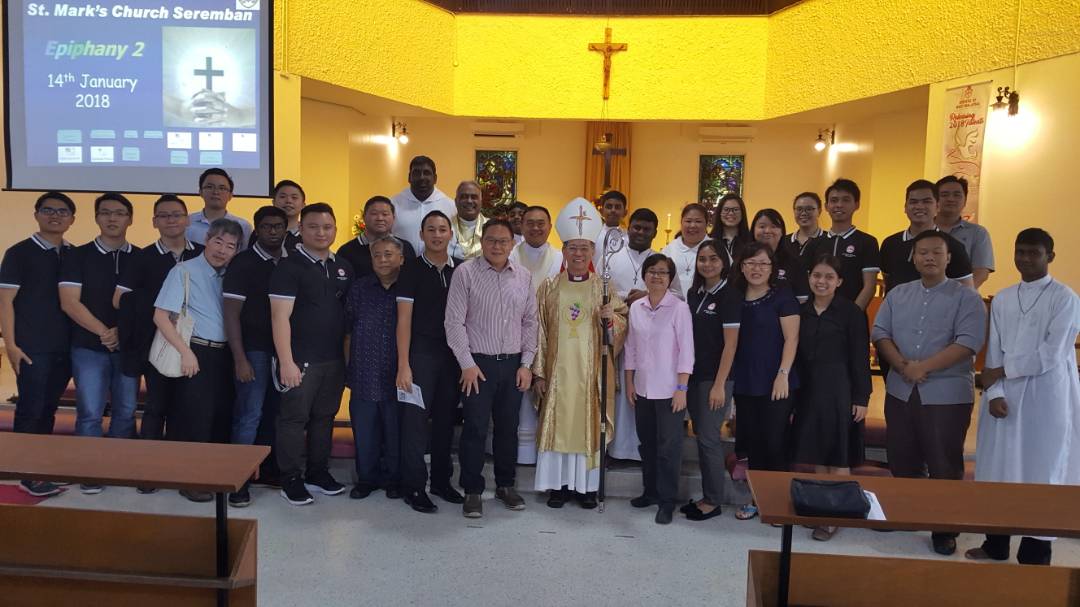
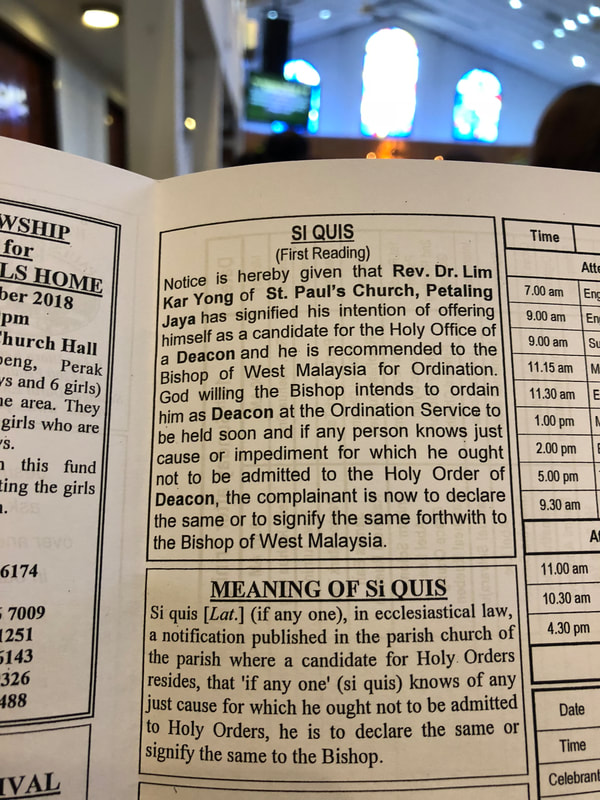
 RSS Feed
RSS Feed